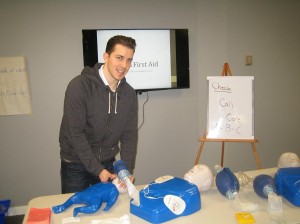Introduction
Neck pain or a hard neck, also known as stiff neck, is a typical issue and, for the most part, nothing to stress over. The agony and pain you feel generally improves following a couple of days or weeks, and is normally an indication of a more severe issue. You can get a firm neck when sleeping or sitting in an uneven position, working on your PC for a long period of time, or strain a muscle during exercise, working or some other activity.
Treating this at Home

For most people, go ahead with your ordinary day by day exercises, keep moving, and take painkillers as indicated on the bottle for pain relief. Other methods for dealing with this at home include:
- Take conventional doses of paracetamol, ibuprofen, or a blend of the two, to control pain – ibuprofen gel can be rubbed onto your neck as a different option if you don’t want to take tablets.
- Try holding a hot water bottle to the neck – this can diminish the ache and any muscle spasms, albeit a few individuals discover cool packs offer better relief.
- Sleep on a low, firm pad during the evening – utilizing an excess of pillows might cause your neck to twist unnaturally.
- Check your stance – terrible stance can exasperate the agony, and it might be the reason for your pain.
- Avoid wearing a neck brace – there is no proof to recommend wearing a neck brace will help your neck, and it’s for the most part, better to keep your neck portable.
- If your neck is firm, attempt some neck exercises – tenderly stroke your neck muscles as you tilt your head, and as you precisely wind your neck from left to right; these activities will fortify your neck muscles and enhance your healing process.
Preventing Neck Pain
Your might may find this information helpful in preventing neck pain:
- Sit accurately while sitting at the computer desk, while also walking appropriately to avoid neck pain.
- Take customary breaks from your work area, driving or any movement where your neck is one position for an extended period of time.
- If you feel some strain, attempt some unwinding methods to facilitate any strain in your neck. Yoga is often thought to have beneficial attributes for those with neck pain.
- Avoid thinking about your front and ensure your head is in accordance with your body (not tilted to the side).
- Only utilize enough cushions (typically one) to keep your head level with your body. Poor cushions or pillows can cause further damage.